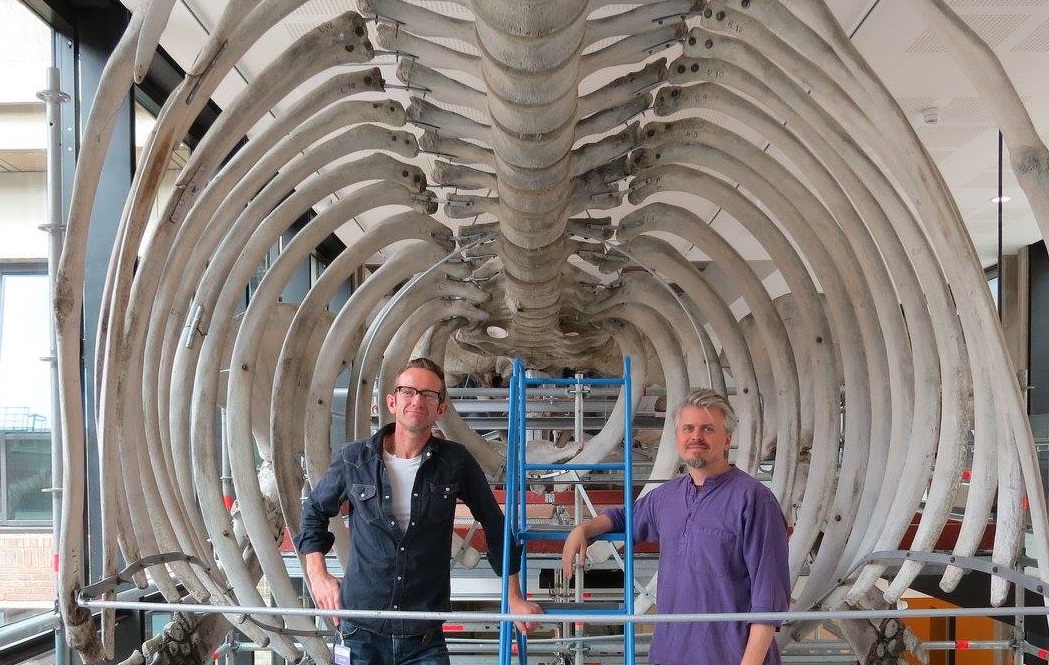Eight extremely fragile and unusual marine skeletons and specimens are to be removed from the Hull Maritime Museum, as part of a multi-million pound heritage-led regeneration scheme.
A decision record published on Friday 18 confirms the appointment of a conservation specialist company to dismantle, pack, conserve and transport the marine animal skeletons. Once removed, they will be placed in long-term storage for the duration of the refurbishment works.
Nigel Larkin of Nigel Larkin Ltd has spent over 30 years working for museums in the UK and abroad, specialising in the excavation, conservation, curation and display of fossils and skeletal material.
In recent years, Nigel has cleaned, conserved, moved and remounted several whale skeletons, including the very large fin whale at Cambridge University Museum of Zoology, the fin whale at The Tullie House Museum in Carlisle, the killer whale on temporary display at the National Maritime Museum Cornwall, the long-finned pilot whale at Leeds Museum and a 5,000 year old humpback whale preserved in the coastal desert of Abu Dhabi.
The specialist company will have the unenviable task of dismantling and transporting the delicate specimens. These include the skeletons of a huge tuna fish and a 40ft north Atlantic right whale, all of which have a fascinating story to tell. Specialist packing techniques will be used to aid the re-assembly process at a later date, the conservation treatment and cleaning process will also be part of the work.
Procurement news |
The appointment of a whale conservator to dismantle & conserve eight extremely fragile & unusual marine skeletons and specimens has been confirmed.
We’re delighted to be working with @MrIchthyosaurus 👏
Read full story➡️https://t.co/IGWeOh8Mfb #HullYMC pic.twitter.com/ZFLeYs5INW
— Hull: Yorkshire’s Maritime City project (@HullMaritime) September 18, 2020
Once the refurbishment is complete experts, alongside the curators, will then undertake the complex task of re-installing some of the skeletons as part of the new displays with more realistic poses and engaging interpretation.
Councillor Daren Hale, Portfolio Holder for Economic Investment, Regeneration, Planning, Land and Property, said: “Conserving these extremely rare and significant skeletons from the museum’s collection is a really important element of the project. Not only to secure the future of the skeletons but to enable the curatorial team to display the objects in new and imaginative ways to really stand out and be enjoyed by the public when the museum re-opens.”
Nigel Larkin, said: “I am delighted to be working with Hull Maritime Museum on their exciting redevelopment project. The museum has an important and fascinating collection that tells the story of Hull’s unique maritime heritage. These whales play a crucial role in the telling of that story, and the wider history of Great Britain.”
Work is expected to get underway in the autumn.
The conservation of the skeletons is part of the wider Hull Maritime project, funded by Hull City Council and the National Lottery Heritage Fund. It includes exciting changes at the Grade II* Hull Maritime Museum, the Dock Office Chambers, the North End Shipyard and two historic vessels, the Arctic Corsair and Spurn Lightship.
For more information on the project, visit maritimehull.co.uk
